Most People Get the New COVID Variant These Ways, Experts Say
Know where the virus spread, and how to stay safe.

COVID-19 cases are rising nationwide, and with that familiar headline comes another sense of deja vu. Is there anything new this time around? Yes and no. The variants don’t seem to be causing more severe illness, but it’s too soon to know if they’re causing different symptoms. A newly approved, updated booster promises increased protection against severe illness and death. Do we need to change our behavior to reduce our risk of exposure? It helps to know where the experts are seeing the virus spread and what they’re doing themselves. This is how most people are getting the new COVID variant, according to the experts.

“I’ve had several friends and colleagues contract COVID-19 over the past few months,” says Adjoa Smalls-Mantey, MD, DPhil, a psychiatrist and viral immunologist in New York City. “Many of them traced it back to a large gathering among friends or family like a party or wedding. It’s important that in crowded spaces we consider wearing masks, especially in poorly ventilated indoor venues.”

On Sept. 13, Scott Lockard, health director for the Kentucky River District Health Department, told the Washington Post he’s seen more business owners calling him for guidance when an employee tests positive. “Pretty much my message is: If you’re in a mass gathering, you’re likely to come in contact with someone who has COVID right now in our area,” said Lockard. “So protect yourself accordingly.” He recommends eligible people get a booster shot, and he advises people to stay home when sick and test when they have symptoms. He also reminds people that masking in public reduces your risk of catching the virus.

“In general, I avoid large group events where I don’t know anyone, particularly if a lot of children or young people are present.” Elizabeth Connick, chief of the infectious diseases division and professor of medicine and immunobiology at the University of Arizona, told the Post on Thursday.
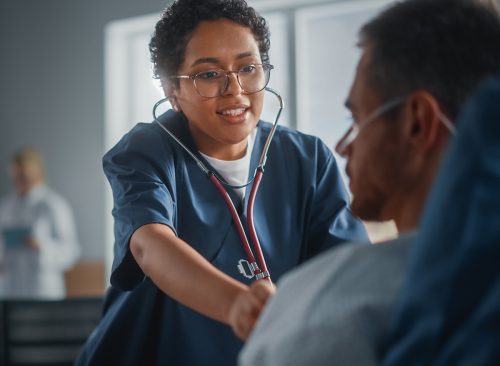
“People who work in jobs with a lot of face-to-face contact, such as teachers and other school employees, healthcare professionals, and those who live in multigenerational households often have frequent recurrent COVID infections,” National Geographic reported on Sept. 13. “For example, healthcare employees working in COVID-19 clinical units can have a four-fold higher risk of getting reinfected relative to those working in non-clinical units.”

“Studies show that the risk of someone getting COVID-19 is much higher among families with young children. In fact, over 70 percent of nearly 850,000 U.S. households might have caught COVID-19 through a child during the school year,” National Geographic reported this week.
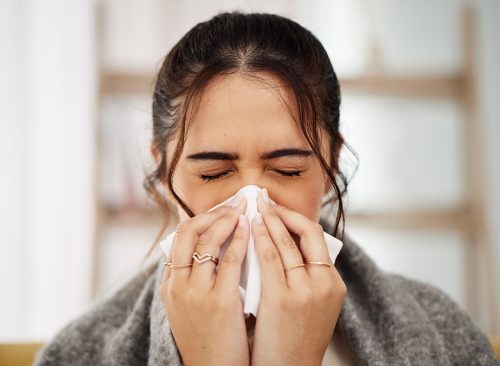
Immunity from vaccination or a previous COVID-19 infection seems to protect you from getting the virus, but only for about seven months. That’s why experts are recommending that eligible people get the new COVID booster that was just FDA-approved and has been rolling out to pharmacies. “As a general rule of thumb, we recommend that everyone get vaccinated by the end of October,” Ryan Miller, DO, an infectious disease specialist with the Cleveland Clinic, said this week. “And if you experience symptoms of any sickness, it’s wise to isolate until your symptoms are resolved, no matter what virus you have.”

As COVID levels spike, “I will eat in restaurants but try and select ones that are ‘airy,'” Connnick told the Post this week. “I will not go to movies or concerts. It is not worth the risk.”
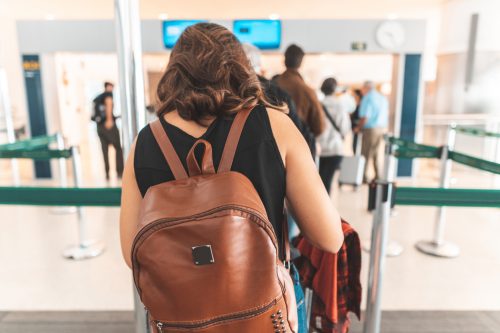
The CDC advises you should wear a mask to protect yourself from COVID while traveling when you’re in crowded or tight spaces with poor ventilation, like airport jetways, airplanes when the ventilation system is off, seaports, or when in close-contact situations like on a train or bus; or when there are high levels of respiratory disease at your travel destination or in the community you are traveling through.
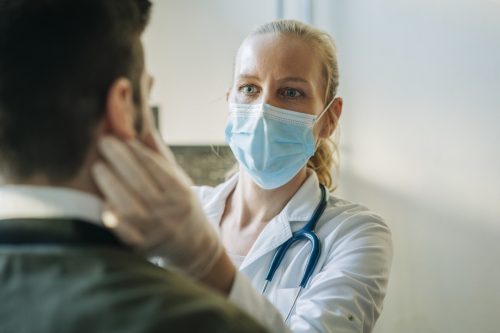
“If COVID continues to spike, then I will likely avoid unnecessary indoor environments,” Natascha Tuznik, associate clinical professor in the Department of Internal Medicine at UC Davis Health, told the Post. “I have been masking up in healthcare settings regularly since COVID cases have gone up. I foresee myself continuing this practice in the healthcare setting and, depending upon viral trends, when I am out in busier indoor settings, such as grocery stores.”
RELATED: Surprising Signs You’ve Already Had COVID
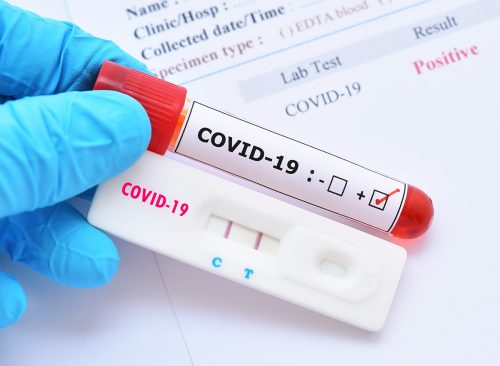
“Many of the adult patients that I see have been asymptomatic and test positive for COVID when we do screening exams for their hospital admission,” says Smalls-Mantey. “Hand washing, using hand sanitizer, sneezing or coughing into your sleeve, staying home when sick, and getting the updated vaccine booster will help reduce your risk of catching COVID and becoming seriously ill.”














